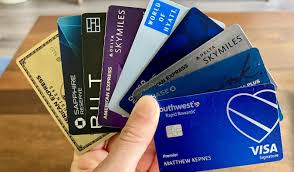LånePenger Med Kredittkort: How to Access Credit Card Financing
Credit card financing is the ability to borrow money using a card. It involves understanding the terms, conditions, and costs related to using a card as source of funds. A good understanding of financing type is critical to making informed decisions and avoiding potential financial pitfalls.
This financing option offers convenience and access to funds when needed. It provides a revolving line of credit for making purchases or paying bills. With responsible usage a good credit history can be built that will earn rewards or cash back on spending. However, if the debt isn’t carefully managed, it can result to high interest charges and cause serious financial strain.
In this piece, we’ll be exploring how to navigate cash advance options and leverage on card limits wisely. Next, we shall give the issue of understanding interest rates and fees some considerations. Finally, we’ll be discussing how to safeguard against financial risks and common pitfalls when accessing financing.
Navigating Cash Advance Options

One common method of obtaining a cash advance is by using your credit card. This is at an automated teller machine (ATM) where one can get immediate access to funds even though it often comes with huge fees. In most cases, the issuers charge a cash advance fee. The cash advance fee is a percentage of the withdrawn amount or a flat rate, whichever is higher.
Some companies that provide this financing type offer convenience checks. These check functions are similar to personal checks but draw funds from your account. The checks serve various purposes, such as pay bills or making purchases where cards are not accepted.
Leveraging Credit Card Limits Wisely
When credit card is used responsibly, its limits can be managed effectively. Also, potential financial difficulties and overextension will be avoided. Other points to note are:
- Understand Your Limits: Credit limits represent the maximum amount you can borrow on your account. They vary based on factors such as creditworthiness and income level.
- Develop Strategies for Responsible Usage: You can develop healthy usage habits and exercise restraint when utilizing them. Your master card will help you maintain control over your finances and avoid potential pitfalls.
- There are Consequences for Exceeding Credit Limits: Note that failing to manage your credit card usage responsibly can have various negative consequences. This may include potential fees, increased interest rates, and damage to your credit scores.
- Be Open to Seek Professional Assistance: If you find yourself struggling with managing your debt or facing financial hardship, consider seeking guidance. With a random search you can get help from sources like kredittkortinfo.no/låne-med-kredittkort/ on the internet. They are certified counselors or financial advisors who will help you navigate the murky debt-waters and guide you to financial safety and stability.
Understanding Interest Rates and Fees

Interest rates play a significant role in determining the cost of borrowing. These rates can vary widely among different issuers. They range from low single-digit percentages to over 20% or higher for some premium cards.
The Annual Percentage Rate (APR) reflects the true cost of borrowing, including interest rates and additional fees. The card providers are required by law to disclose the APR. It makes it easier to compare and evaluate different offers on the table and make informed choice.
In addition to interest charges, issuers of the financial instrument may impose various fees that will significantly increase the overall cost of borrowing. Common fees include annual fees, balance transfer fees, cash advance fees, foreign transaction fees, and late payment fees.
Safeguarding Against Financial Risks and Common Pitfalls

While credit cards offer a convenient way to access financing, it’s crucial to be aware of its potential risks and pitfalls.
Understand Credit Card Debt Risks
Failing to manage your debt responsibly will lead to a variety of financial challenges and long-term consequences such as:
- High-Interest Rates: Credit cards often carry higher interest rates compared to other forms of borrowing. This makes it easy for debt to accumulate rapidly if balances are not paid off in full each month. Visit this website to learn how to manage rising interest rates on your card.
- Damage to Credit Scores: Late or missed payments, high credit utilization ratios, and excessive debt can all negatively impact your scores. The result is that it becomes more difficult and costly to obtain future financing or loans.
- Debt Spiraling: If your account balances continue to grow due to new charges and accrued interest, it can become increasingly difficult to catch up on payments. This may lead to a vicious cycle of debt accumulation.
Avoid Common Financing Pitfalls
Implementing responsible card usage practices will help mitigate risks and prevent financial hardship. Take the following into consideration to avoid pitfalls:
- Avoid Overspending and Impulse Purchases: Be mindful of your spending habits and avoid unnecessary impulsive purchases. Impulsive use of your financial instrument will lead to debt accumulation.
- Minimum Payment Traps: Making only the minimum required payment on card balances can result in paying excessive interest charges over an extended period. This will make it difficult to pay off the debt.
- Introductory Rate Expirations: Be aware of when promotional or introductory interest rates expire. This is necessary because upon expiration, balances may be subject to higher rates, leading to increased borrowing costs.
Developing a Repayment Plan
Proactively addressing debt is essential to regaining financial stability. Implement the following strategies to help your repayment plan:
- Budgeting and Prioritizing Payments: Create a realistic budget that prioritizes payments. Also, allocate funds no matter how small to chip away outstanding balances.
- Debt Consolidation Options: Explore debt consolidation options, such as balance transfers or personal loans. These options may offer lower interest rates and help you simplify the repayment process.
- Counseling Services: If you’re struggling to manage your debt, consider seeking assistance from non-profit counseling agencies. They have the expertise to provide debt management plans and also offer negotiation assistance with creditors.
You can get additional information on how to pay up your debt faster from this article.
Conclusion
Credit card financing provides easy access to funds. However, it requires understanding its terms, fees, and how to manage debt responsibly. It explores cash advance options, credit limits, interest rates, and safeguarding against risks like high interest, credit score damage, and spiraling debt.







